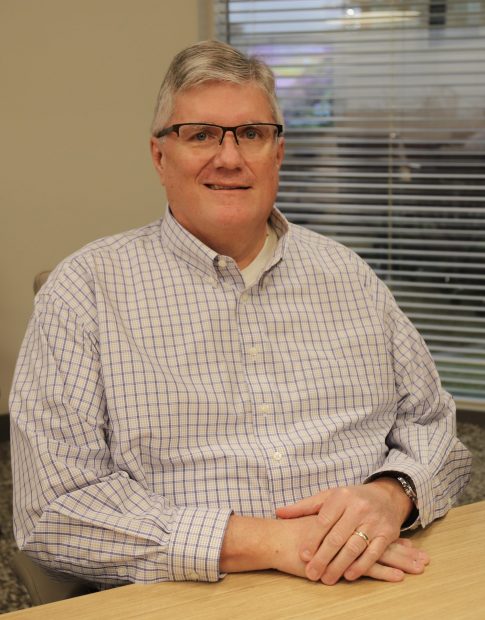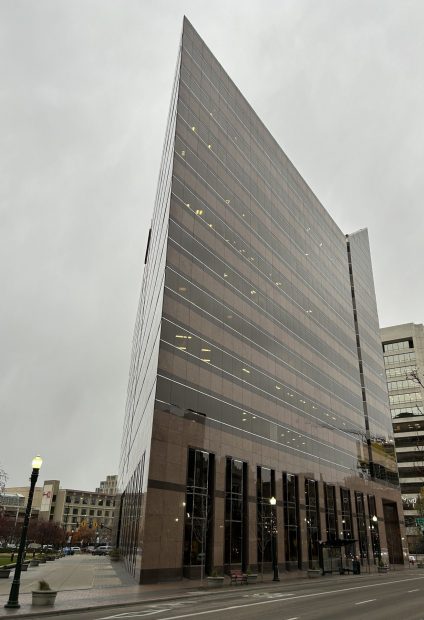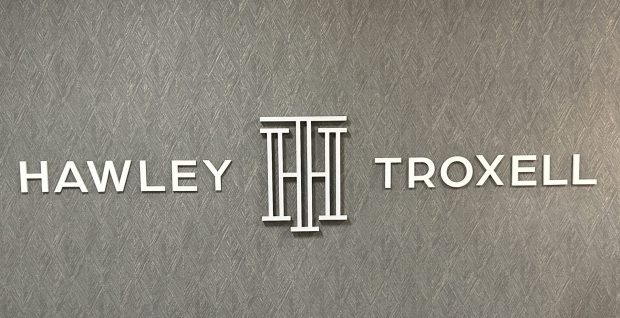Building schools in Idaho is an odyssey fraught with restrictive laws and complicated financial moves.
To navigate it all, many school leaders turn to well-known Idaho law firm Hawley Troxell and investment bank Piper Sandler. Trustees have siphoned millions of taxpayer dollars to the private businesses over the years — a cost that school leaders say cannot be avoided in the ever-complex path to maintaining and constructing public schools.
“The Legislature has put so many strings attached that many default to working with an attorney to avoid any inadvertent issues,” said Quinn Perry, policy and government affairs director for the Idaho School Boards Association. “We always recommend (districts and trustees) work with both groups, right off the bat.”
Education leaders say they need outsourced, high-level, Idaho-specific expertise to build and maintain schools in a state where:
- A two-thirds supermajority voter approval is required for a bond to succeed.
- School buildings are infamously decrepit.
- The Legislature places the brunt of funding schools on local taxpayers.
- Most bond measures fail — 70% since 2019.
- Charters are not allowed to ask taxpayers to chip in for facilities.
- School employees are barred from using school resources (like time or funds) to advocate for bond measures, and can face prosecution if they do.
- All school communications about bonds must include ballot language — lengthy legalese that school leaders say confuses patrons.
In every school funding election, much is at stake: how leaders handle (or mishandle) elections can divide or unite communities, and solve or prolong issues like overcrowding and disrepair. So they call in these experts to help avoid legal hot water, secure the best financing deals, and understand the complicated bonds and ballot measures.
But hiring the firms is not a fail-safe — legal advice is ignored; bonds fail anyway; taxpayers criticize the use of private players who gain from the process. It’s also expensive, costing taxpayers hundreds of thousands of dollars each year — but superintendents will say their experience and expertise are worth it.


Many public school leaders rely on these firms — but can still hit roadblocks
Hawley Troxell and Piper Sandler often work in tandem and seem to appear wherever education leaders gather, from school board meetings to annual conferences. If there’s talk of spending money on schools, their lawyers and bankers are often in on the conversation.
Here are some recent examples:
- Madison: Last March, voters approved a $25.5 million bond for the Madison School District to finance a new school, and add-ons and a remodel at two others. Hawley Troxell and Piper Sandler helped.
- Bonneville: In August, the Bonneville School District passed a $34.5 million bond that had failed in May, and now plans are underway to build a new elementary. Hawley Troxell and Piper Sandler are behind those efforts.
- Twin Falls: School leaders are considering putting a $50 million bond on an upcoming ballot for school repairs and upgrades. You guessed it — Hawley Troxell and Piper Sandler are helping them.
Tom Mortell, Hawley Troxell’s co-managing partner, estimates that half of Idaho districts call on his firm for legal help. Similarly, in the past three years, about half of all Idaho education bonds have been handled by Piper Sandler, according to data from the firm.
“They play two different critical roles, but they’re absolutely partners,” Perry said.
Hawley Troxell advised Idaho Falls trustees to be overly cautious with bond communications: A timeline
July 2022: Hawley Troxell urges trustees to refrain from explaining “the ‘need’ for new facilities” when communicating about an October 2022 bond. “Such explanations can be seen as advocating for the bond measure even if the information is inherently factual.”
Fall 2022: Idaho Falls School District distributes materials communicating the need for the bond.
October 2022: The bond fails.
Spring 2023: Bonneville County Prosecutor Randy Neal files a formal complaint against Idaho Falls officials for allegedly using tax dollars to advocate for a bond. He cites the Hawley Troxell memo.
December 2023: The district and prosecutor’s office reach a settlement agreement.
Eric Heringer, a managing director for Piper Sandler, said he and Nick Miller, a partner with Hawley Troxell, have likely attended 300 school board meetings together over the past 25 years.
Wonky policy and education fine print that might make a layman’s eyes glaze is their bread and butter. Piper Sandler bankers comb through financials and become versed in the nuances of interest rates, property taxes, and bond markets. Hawley Troxell lawyers have intimate knowledge of Idaho education laws pertaining to buying and building schools. They advise trustees and school leaders on how to navigate them.
Their work has major implications for students.
Perry said districts turn to them because the risks of inadvertently breaking a law without the firms’ help is too high: “Not only could districts be fined, but somebody could challenge their election and try to invalidate it.”
When bonds are already so hard to pass in Idaho, having one revoked could be catastrophic.
In the Idaho Falls School District, several such worst-case scenarios have recently played out: a former superintendent was fined for allegedly advocating for a bond that failed, and a plant facilities levy that voters approved was later revoked because it violated a law.
In both cases, the district had relied on guidance from Hawley Troxell and Piper Sandler — but didn’t follow lawyers’ advice in at least one case that led to litigation.
Perry said the incidents are “more incentive” to work with the firms — in a minefield of complex laws, districts can misstep even with expert help.
Every year, hundreds of thousands of taxpayer dollars go toward Hawley Troxell and Piper Sandler. School leaders say it’s worth it.
Since the firms are private, it’s impossible to quantify the tax dollars funneled their way each year — but it’s in the hundreds of thousands of dollars.
In the past three years, Piper Sandler has advised or underwritten 30 school bonds or levies, for a combined $536 million in taxpayer dollars. That’s more by far than any other firm in Idaho that does similar work.

Piper Sandler advises and underwrites bonds for charters, traditional schools, and universities. Click here to see a list of all the education deals Piper Sandler has worked on since 2018.
Piper Sandler is paid a percentage of every bond it underwrites. Heringer said it’s less than half a percent.
In the case of Bonneville’s $31.57 million bond, then, Piper Sandler would have been paid no more than $160,000.
Hawley Troxell did not share with EdNews what it gets paid for services. But an EdNews review of the Idaho Falls School District’s finances shows it paid Hawley Troxell about $136,000 for 10 months of work in 2023.
School leaders say the firms are worth the cost.


Vallivue Assistant Superintendent Joey Palmer said that Piper Sandler saved Vallivue $13.8 million in taxpayer dollars from 2003 to 2013 by refinancing bonds. Bonneville Superintendent Scott Woolstenhulme said the firm similarly saved his district millions in taxpayer dollars in 2020.
“We want to make sure we’re getting the best bang for our buck, and being good stewards of the tax dollars the community entrusted us with,” said Randy Lords, superintendent at Madison School District.
The firms help them do that.
“There’s literally nobody in a school district who’s going to have that level of technical expertise to do that work,” Woolstenhulme said.
But the firms have their detractors. A small but vocal group of taxpayers in the Idaho Falls area accused Bonneville School District leaders of blindly following advisers from Piper Sandler, who profit off district bonds.
So the district hired a third party — Zions Bank — to act as an independent reviewer of the school’s financial transactions. Zions Bank has no financial stake in the district’s bond sales.
The extra oversight is another cost, but Woolstenhulme said it’s worth it to make taxpayers feel more comfortable.
In Idaho’s school bond business, leaders try, try again
Bonds in Idaho have become increasingly more likely to fail at the ballot box.
Mortell attributes it to a growing hostility toward public education, and frustration with increasing property taxes.
School bonds have become increasingly likely to fail
| Five year period | Bond passage rate |
| 2014-2018 | 56% |
| 2019-2023 | 30% |
Part of it could be sticker shock — districts have recently floated some of the highest bond asks in Idaho history.
“It’s because construction costs are so high, not because they’re building fancy buildings,” said Brady Dickinson, the Twin Falls superintendent.
Whatever the reason, a district’s path to building a new school or making major improvements is often littered with obstacles.
Voters have rejected bonds, even in extreme situations:
- In Pocatello/Chubbuck, after a fire partially destroyed a high school in April, voters denied a November bond measure that would’ve helped restore and improve the school. It was the district’s first bond request in more than two decades. The district is considering running another measure in the future.
- In Salmon, voters have denied a school bond a record number of times — 12. Its elementary school cannot accommodate all the students, has a cracked foundation, frost heaves in the flooring, and a cafeteria out of code. The district recently decided to run another bond this spring.
Bonds have passed by the narrowest of margins:
- Vallivue’s $65.3 million bond passed by just two votes in March 2019; the win was verified with a recount.
- A $75 million bond in Twin Falls passed by just 70 votes in 2014.
It often takes multiple attempts before a bond passes:
- Vallivue’s $78 million bond passed in May — the district’s third attempt to secure funding for new schools and maintenance.
- Bonneville’s $34.5 million bond passed in August, after it failed that May.
They’re all school districts Hawley Troxell and Piper Sandler have worked with — so the firms are well-acquainted with the ups and downs of their business. Still, after 25 years of working on school bonds, Heringer seems undaunted by the odds.
“Eventually there’s going to be a successful bond,” he said. “There’s a certain optimism I always have, because at the end of the day, communities rally around what’s needed.”
Idaho Education News data analyst Randy Schrader contributed to this report.
Further reading:
